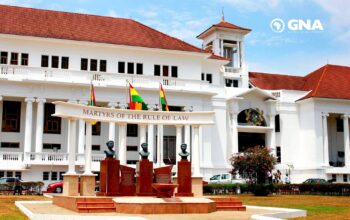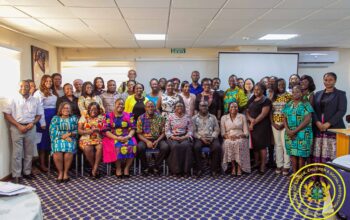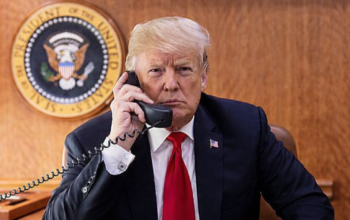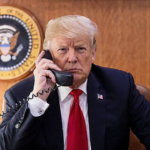The New Patriotic Party (NPP) is actively regrouping and strategizing for a political comeback in the 2028 general elections. Following their defeat in 2024, party leaders and members have initiated a comprehensive restructuring process aimed at revitalizing the party’s base and enhancing its competitiveness.
Key Strategies for 2028
- Internal Reorganization and Reform
- A committee led by Professor Mike Ocquaye was established to analyze the reasons behind the 2024 electoral loss and recommend structural reforms. The committee’s report, presented to the National Council, emphasizes the need for a more inclusive and transparent internal structure. Proposals include transitioning from a delegate-based system to an electoral college system, allowing all card-bearing members to vote in primaries and elections for party executives.
2. Unity and Inclusivity
- Vice President Dr. Mahamudu Bawumia has called for unity within the party, urging members to avoid blame games and focus on collective rebuilding efforts. He believes that with unity and strategic changes, the NPP can reclaim power in 2028.
3.Youth Engagement and Leadership
- The party is emphasizing the importance of youth involvement, with proposals to limit the position of Youth Organizer to members of TESCON, the NPP’s tertiary student branch. Additionally, there are calls to expand the democratic process for electing youth leaders and other key positions within the party.
4. Broadening Support Base
Lawmakers like Samuel Abu Jinapor advocate for an “open-door policy” to reintegrate disenchanted members and attract supporters from opposition ranks. This approach aims to strengthen the party’s support base and enhance its appeal to a broader electorate.
Haruna Mohammed, the Deputy General Secretary of the New Patriotic Party (NPP), has reaffirmed the party’s commitment to reclaiming political power in the 2028 general elections. In an appearance on Joy News’ PM Express on April 16, 2025, he emphasized the NPP’s determination, stating, “We are very focused. We are very determined. We are very sure.”
Mohammed criticized the current administration, labeling it as “very incompetent,” and underscored the NPP’s readiness to challenge the government’s performance. He highlighted the party’s historical tradition of establishing committees to review electoral outcomes, noting that the NPP initiated this practice in 1992 with the “Stolen Verdict” report. This tradition continues with the recent formation of the Professor Michael Ocquaye committee to analyze the 2024 election results.
The Deputy General Secretary also addressed internal party dynamics, asserting that the NPP remains unified and resilient, unaffected by individual grievances. He dismissed claims of fragmentation within the party, emphasizing that the NPP is “stronger and bigger than any individual.”
That statement from Haruna Mohammed really reinforces the NPP’s current posture — not just a party in reflection, but one in active preparation for a comeback. The emphasis on “prepared to fight on in 2028” lines up perfectly with everything they’re rolling out: the internal restructuring, outreach to youth, and unity push.
It’s clear they see 2024 not just as a loss, but a moment to recalibrate. And with the committee’s report led by Prof. Mike Ocquaye, plus Haruna’s tone on Joy News, it’s more than political talk — it’s a full reawakening strategy.
Haruna Mohammed confirming that the National Council received the report from the Professor Mike Ocquaye-led committee shows the party is being deliberate and methodical in its approach. Assigning the committee two clear missions:
- Investigate the causes of the 2024 electoral defeat, and
- Recommend structural reforms
…isn’t just a symbolic move. It indicates the party wants to understand both external factors (voter behavior, opposition strategies, national sentiment) and internal dynamics (leadership issues, campaign machinery, delegate processes).
From what’s already been leaked or hinted, there’s a strong push toward opening up internal democracy — possibly moving from delegate-based voting to a more inclusive electoral college or even universal card-bearing member voting.
Haruna Mohammed’s clarification really paints the full picture of how intentional the NPP is being about this rebuilding phase.
Quoting him directly:
“You remember that on the second of January, we had a National Council. An ad hoc committee was set up to look at two issues. One is to look at the reasons why we lost in the 2024 general elections. And the second is to look at possible amendments and restructuring of the party.”
This reinforces that the January 2nd National Council meeting wasn’t just a routine sit-down — it was the starting point for a deeper introspection. By forming an ad hoc committee, they signaled urgency and seriousness in dealing with the fallout of 2024.
It also hints at a possible constitutional or structural shake-up within the party. If they’re discussing amendments, that could involve:
- Revising the party constitution
- Changing how candidates or leaders are elected
- Possibly decentralizing campaign planning.










